Triumph was best-known in the United States for selling rakish sports cars, from the TR2s of the middle 1950s through the very last TR7s and TR8s of the early 1980s. Back in its home country, though, Triumph offered a much broader range of vehicles, including quasi-sensible family sedans such as the Herald. From 1961 through 1967, new left-hand-drive Heralds were available for sale here. Today’s Junkyard Gem is one of those rare cars, found in a Denver self-service knacker’s yard recently.
The Herald was developed as a replacement for the Standard 8/10, first hitting British showrooms as a 1959 model. Originally planned as a unibody design, production difficulties forced Triumph-Standard to make the Herald a traditional body-on-frame car. This paid dividends later on, when Herald chassis were used as the basis for Israel-market vehicles built by Autocars.
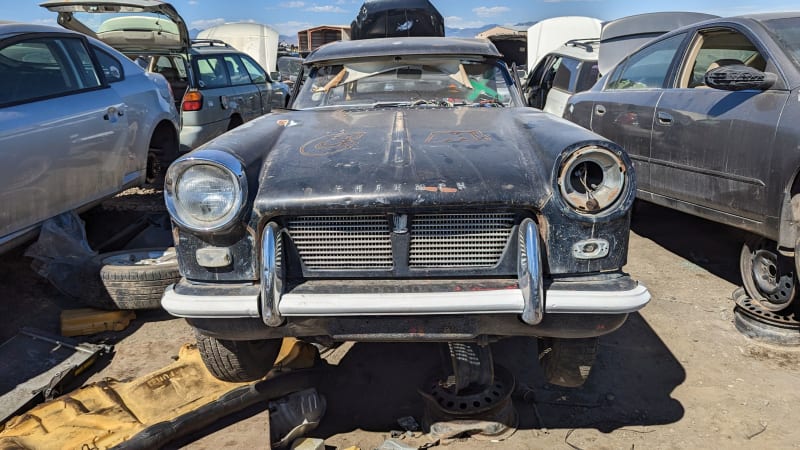
The Herald was styled by Giovanni Michelotti, who designed dozens of sporty-looking machines, ranging from the Prince Skyline Sport Coupe to dozens of gorgeous Vignale coachbuilt body designs for Ferrari. The Triumph GT6 and Dolomite were Michelotti designs as well.
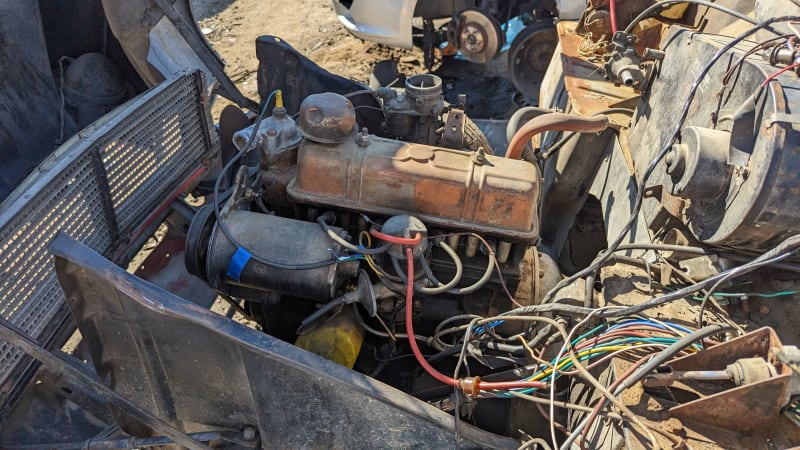
The Triumph Spitfire was based on the Herald chassis, with the same running gear. In this way, the relationship of the Spitfire to the Herald could be thought of as similar to that of the original Ford Mustang to its Falcon sibling.
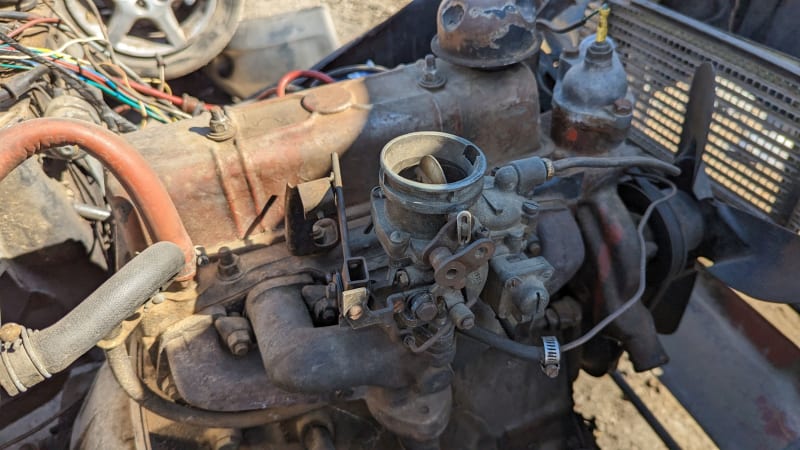
The Herald began production with a 948cc four-cylinder pushrod engine under its forward-hinged bonnet, but that engine’s 34.5-horsepower output was miserable even by the standards of late-1950s Britain. The Herald 1200 was named for its bored-out version of the same engine, which displaced just 1,147 cubic centimeters but got credit for an additional 53cc for marketing reasons. This car’s engine was rated at 43 horsepower, enough to get the Herald up to American highway speeds… eventually.
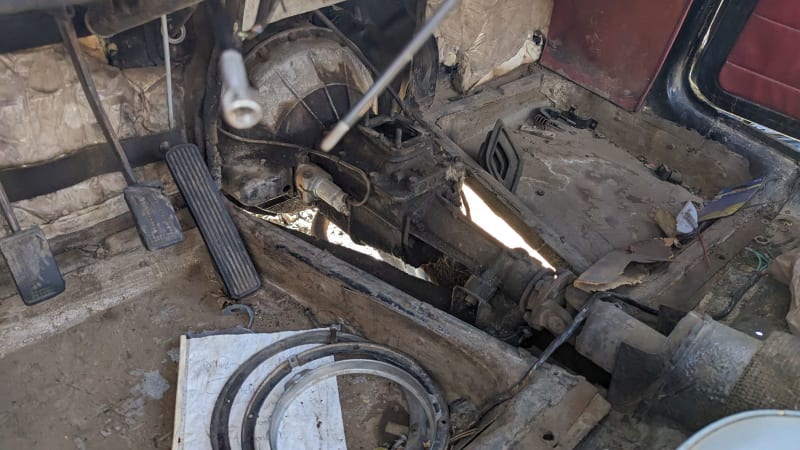
The only transmission installed by the factory in the Herald was a four-on-the-floor manual, with a crunchy non-synchro first gear for an old-timey American motoring experience (Detroit didn’t complete the transition to fully synchronized manual transmissions across all models until deep into the 1970s).
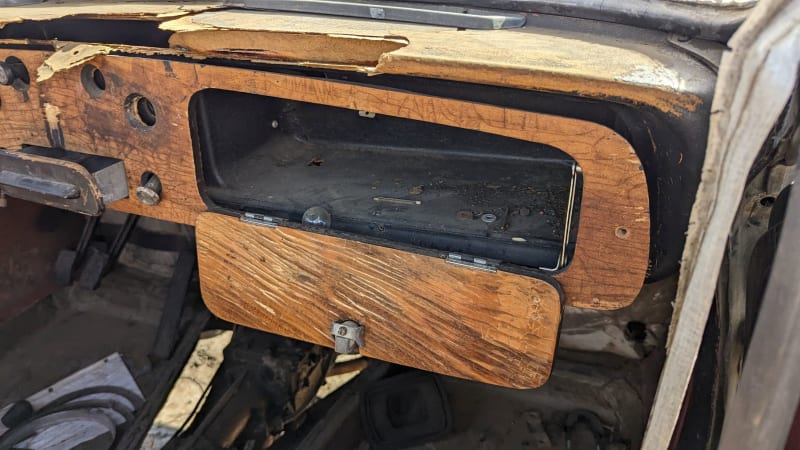
Unusually for an affordable small car at the time, the Herald 1200 featured a real wood dashboard.
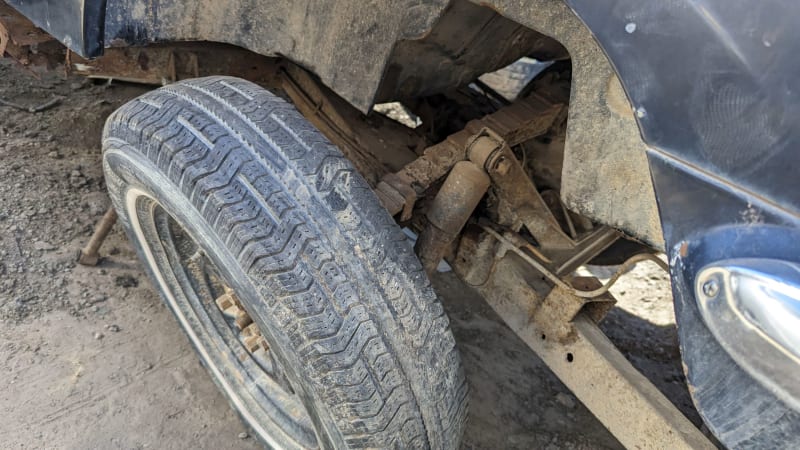
The rear end used a swingaxle design, similar to those used in the (pre-1968) Volkswagen Beetle and the (pre-1965) Chevrolet Corvair. The Mercedes-Benz W120 also had this sort of rollover-prone rear suspension.
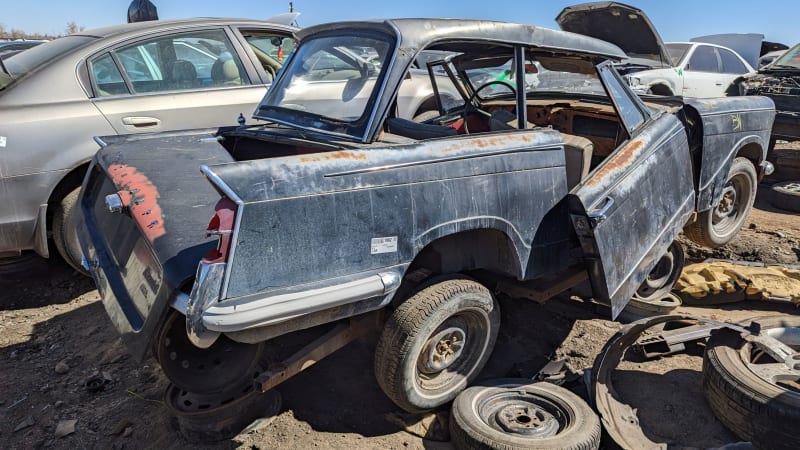
This car is in rough shape, apparently having been partially cut up by its finally owner. There’s not much rust, though, so perhaps the idea was to use it as a body donor on a corroded Herald.
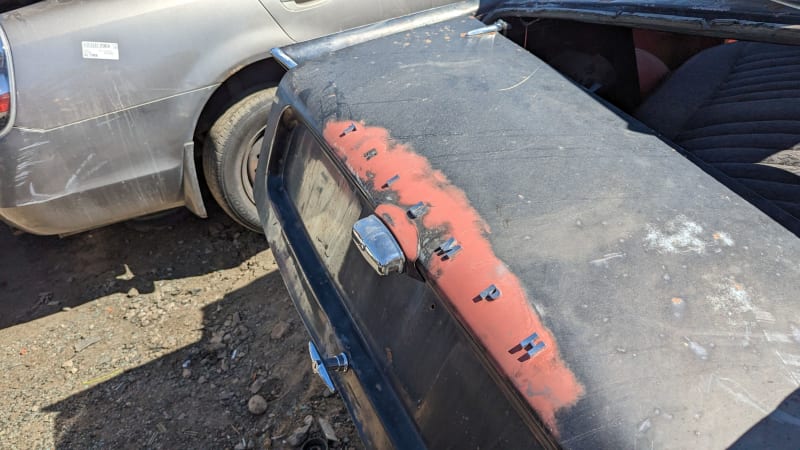
The convertible and coupe versions of the Herald are worth much more than the lowly two-door saloons, so this car had approximately zero chance of being fixed up and put back on the road. Perhaps some of its powertrain and suspension hardware will be rescued by a Colorado Spitfire enthusiast before it faces the cold steel jaws of the crusher.
Just the car for London stalkers!
Also ideal for car thieves who wish to evade the rozzers (whose lumbering Wolseley 6/110 had no hope of turning inside the agile Herald).
Triumph’s marketers really bore down hard on the Herald’s small turning circle.
Read the full article here


